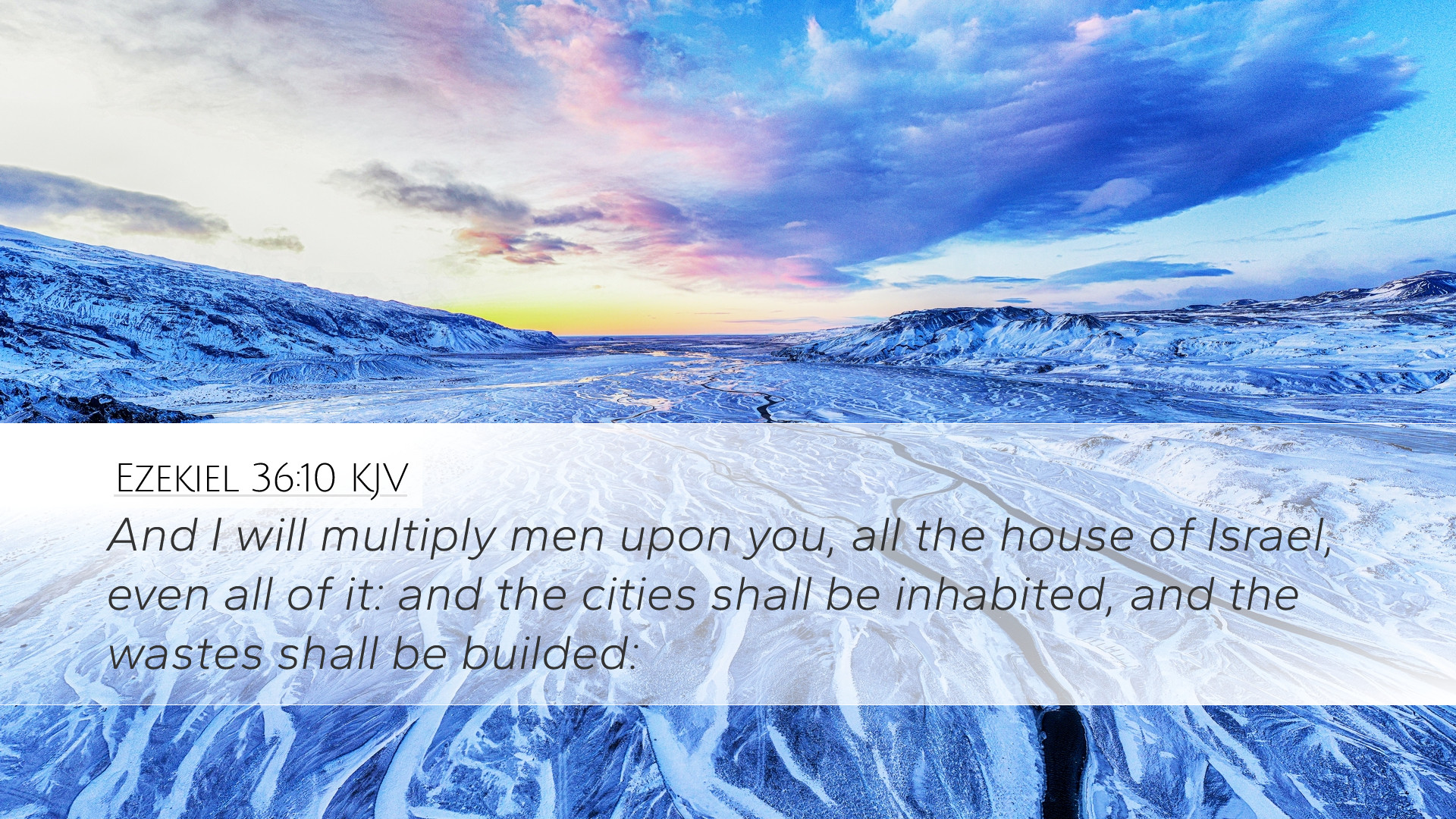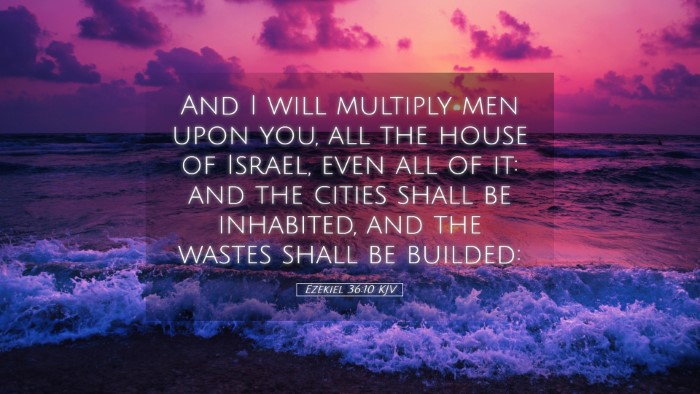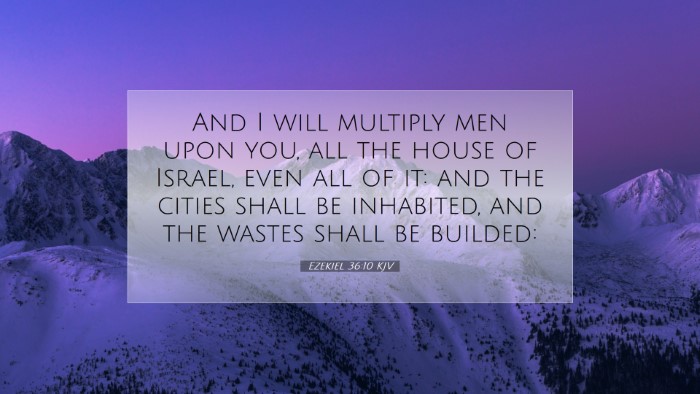Ezekiel 36:10 Commentary
Ezekiel 36:10 states: "And I will multiply men upon you, all the house of Israel, even all of it: and the cities shall be inhabited, and the wastes shall be builded." This verse is a powerful declaration of restoration and abundance, reflecting God's promise to the people of Israel during a time of great despair.
Overview of the Verse
This verse comes as part of a broader message of renewal delivered by the prophet Ezekiel, highlighting God's desire to bring life to what was once desolate. Throughout Ezekiel, we find themes of judgment, but here a shift occurs, emphasizing God’s grace and faithfulness to His covenant.
Contextual Significance
The context of this passage lies in the period of Israel's exile, where they faced the consequences of their disobedience. Ezekiel's audience was disheartened, and their homeland lay in ruins. Therefore, this promise serves as a beacon of hope, indicating that God has not abandoned them.
Matthew Henry's Insights
According to Matthew Henry, this verse emphasizes the restoration of Israel not merely in terms of population but also in spiritual renewal. He notes that God’s commitment to multiply the inhabitants of the land is indicative of His desire to fulfill His covenant promises.
Restoration of People and Places
- Multiplication: The phrase "I will multiply men upon you" speaks to both physical and spiritual replenishment. It reassures the Israelites that their future will be filled with life and vibrancy.
- Rebuilding Cities: As cities are to be inhabited again, this signifies a restoration of societal structure and community life, moving from desolation to abundance.
Albert Barnes' Commentary
Albert Barnes elaborates on the transformative aspect of God's promise. He views the restoration as essential not only for the physical condition of the land but also for the spiritual awakening of the people. Barnes emphasizes that the realization of God’s promise relied on His sovereignty and unchanging nature.
Theological Implications
- Divine Sovereignty: The restoration is a demonstration of God's ultimate authority over nations and individuals. He has the power to bring life into desolation.
- Hope for the Future: This promise illustrates God’s intentions for His people, fostering hope that extends beyond mere survival to the fullness of life and community.
Adam Clarke's Teachings
Adam Clarke offers a detailed interpretation, linking the flourishing of Israel with the blessings from God. He highlights that the reinstatement of Israel within their own land symbolizes a larger spiritual truth, where God continually engages in redemptive acts.
Symbolism of Restoration
- Spiritual Renewal: Clarke notes that the physical restoration of Israel’s cities mirrors the spiritual revitalization of its people, as they return to faithfulness.
- Covenant Faithfulness: The revitalization of the land serves as a testament to God’s faithfulness to His covenant, reinforcing the relationship between the Creator and His creation.
Pastoral Applications
This verse presents significant implications for pastoral ministry and Christian teaching. In the context of congregational life, it encourages leaders to communicate messages of hope and restoration, reflecting on God’s promises towards His people.
Encouragement for Believers
- Message of Hope: Just as God promised restoration to Israel, pastors can assure their congregations of God's ongoing work in their lives, encouraging believers in times of despair.
- Call to Faithfulness: The call to renew one’s commitment to God is reinforced by the necessity of aligning oneself with His covenant, recognizing that restoration requires participation.
Theological Reflection
The theological implications of Ezekiel 36:10 lead to deeper reflections on God's nature. He is a God who restores, revives, and fulfills His promises. This reinforces the importance of preaching about God’s character in the light of historical faithfulness.
Conclusion
Ezekiel 36:10 stands as a powerful affirmation of God's intention to restore His people and provide for their needs. As we reflect on this verse through the insights of Henry, Barnes, and Clarke, we grasp a deeper understanding of how God's promises unfold in the dynamics of human history. The message of restoration resonates powerfully today, encouraging believers to trust in God's faithfulness amid desolation.


